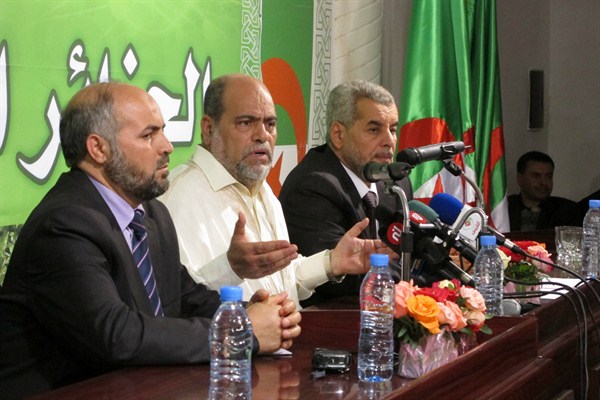Ahead of parliamentary elections in May, Algeria’s fractious Islamist parties have announced unlikely new sets of electoral blocs. The confusing new coalitions are not just the latest iteration of the alphabet soup of Algeria’s Islamists. They also reflect the enduring limitations of Islamist party politics, which present an incomplete picture of political Islam in Algeria.
The Movement for a Society of Peace, or MSP, Algeria’s largest Islamist party, declared a new alliance with the Front for Change, a splinter group that broke away from the MSP in 2008. Three other prominent Islamist parties—al-Bina al-Watani, al-Adala and al-Nahda—said earlier that they would form their own electoral alliance. Al-Bina al-Watani is itself another MSP breakaway.
The schisms have confounded Algerians, representing the disunity and zero-sum game among Algeria’s Islamists. The parties have been trivialized by competing claims of authenticity and adherence to their founding ideology since Algeria emerged from a decade of violence in 1990s.

